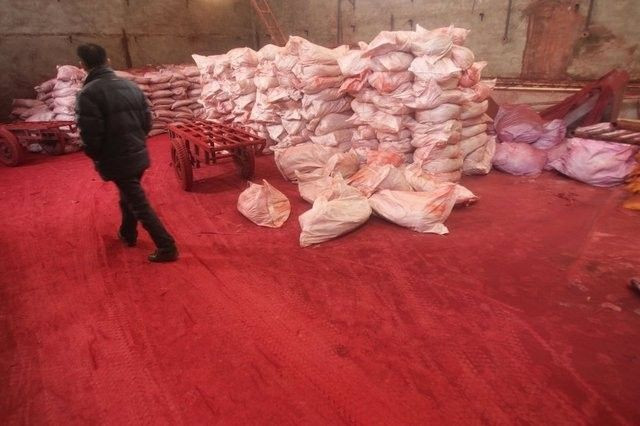Chemical Dumping Poses Grave Economic, Health Hazards For Developing Countries: UN

Developing countries now officially have something else to worry about: chemicals.
A new report released on Wednesday from the United Nations Environmental Programme and the World Health Organization says that improper chemical disposal can significantly stunt forward economic progress in developing countries.
According to the report, only a fraction of the more than 140,000 chemicals on the market today have been evaluated for their health and environmental effects, and that poisoning from industrial and agricultural chemicals causes over one million deaths every year.
As developing countries transition from traditional methods of dying and cleaning clothes, planting fields, and doing business, they are increasingly reliant on modern chemicals in soaps, fertilizers, and disinfectants -- but many do not have the means or knowledge to properly dispose of the dangerous chemicals properly.
"The gains that chemicals can provide must not come at the expense of human health and the environment," said Achim Steiner, the UNEP's Executive Director, in a statement.
"Pollution and disease related to the unsustainable use, production and disposal of chemicals can, in fact, hinder progress towards key development targets by affecting water supplies, food security, well-being or worker productivity."
The UNEP also said that global chemical sales are predicted to increase by about three percent every year until 2050.
The increasing reliance on chemicals for everyday activities, what the report calls "a chemical intensification of economies," means that more chemicals will be ending up in waste management systems, in the ground, in the air, and in the water. This also means, naturally, that the number of people who die due to chemical exposure every year will increase.
This will have negative effects on both the physical and economic health of these developing countries. For example, said the report, in Sudan, pregnant women are three times more likely to die when farming with pesticides. And in Ecuador, a source of once-clean water for a village near an oil well contained levels of petroleum hydrocarbons 288 times higher than regulation standards.
Economically, the UNEP reported that poor management of chemicals caused worldwide losses of over $200 billion. In China, water pollution cost the government over $600 million, and in the US, the UNEP said that "poorly managed pesticides resulted in $1.4 billion in crop losses."
That's just in the wealthier countries, who can afford to lose that magnitude of money. The report estimated that between 2005 and 2020, accumulated costs for pesticide- and chemical-linked injuries in Sub-Saharan African farms will top $90 billion.
The report ends with recommendations for how to move forward, noting that countries such as Brazil, Costa Rica, and Uganda have already implemented their own government agencies to oversee chemical waste management.
© Copyright IBTimes 2025. All rights reserved.






















